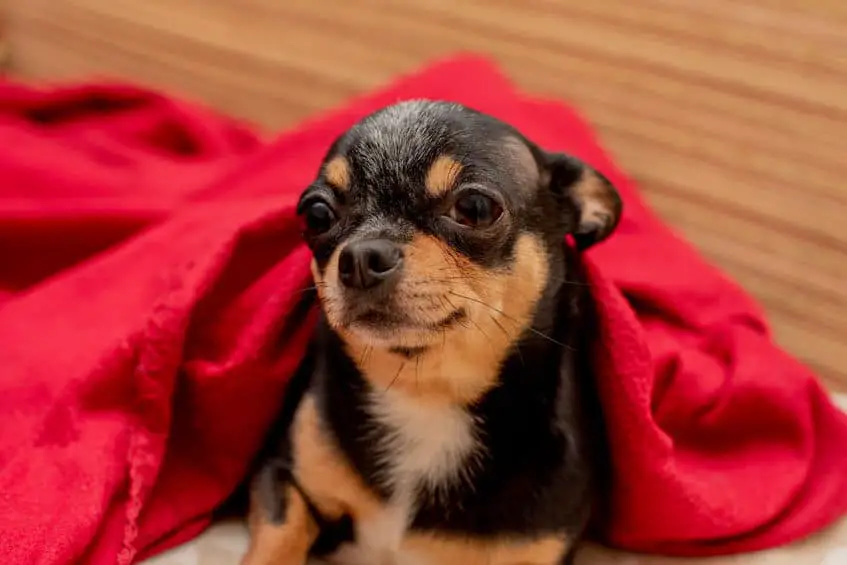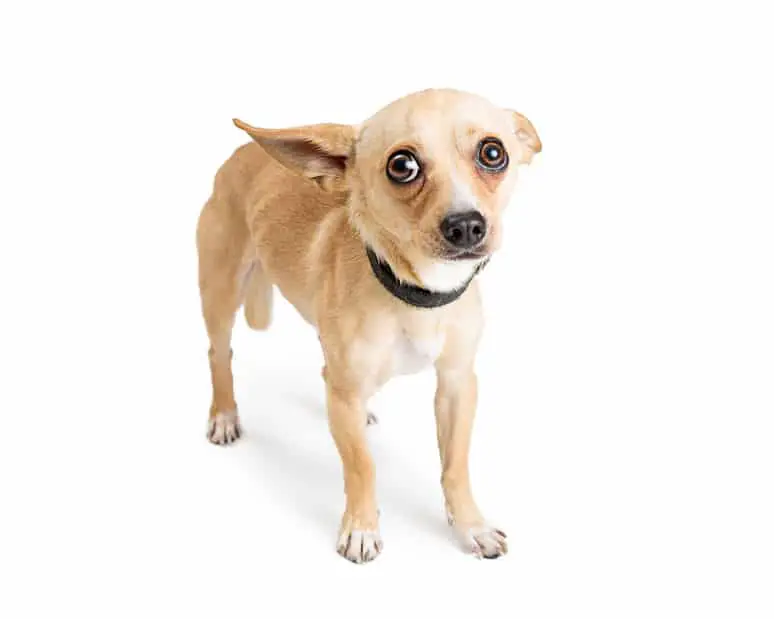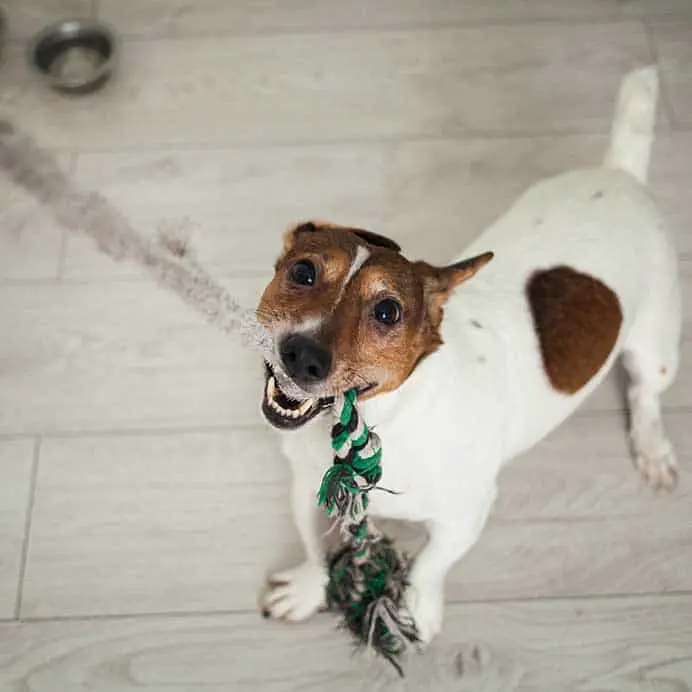Wanting a dog while working a full-time job can pose some challenges, I know this because I have been in a similar situation where i had to consider getting a dog regardless of having a 9 to 5 job. You may also be in a situation where you are about to leave your chihuahua alone for the very first time and you were wondering if chihuahuas can be left alone for hours.
Yes, Chihuahuas can be left alone for at least 10 hours, as long as you put in place and consider some important factors to ensure they don’t suffer separation anxiety or become destructive.
In this blog post, I have done my research and I will be explaining what you need to know about leaving your chihuahua alone, things you have put in place to make that possible, and how to identify, treat separation anxiety and destructive behaviour amongst other things.
Do Chihuahuas need a lot of Attention?
Chihuahuas are known to be very loyal to their owners and they can get very attached. They would always find their way to your laps or arms. Always tagging along with you, where you go.
Chihuahuas require your attention as do all dogs, regardless of their size and breed. On the issue of needing a lot of attention, Chihuahuas can get along just fine on their own without being extremely needy.
It is important to note that chihuahuas do not do so well in a cold environment, they would often find warm spots around the house or bury themselves under a blanket, so purchasing sets of dog sweaters become necessary. This can be seen as an opportunity to dress up your Chi in different colourful attires during the winter.

Chihuahuas are an intelligent tiny dog breed and are quick to learn new habits and tricks. This provides an opportunity to train your chihuahua to be self-sufficient around the house; like potty training on a disposable mat.
Chihuahuas do not do so well around little children due to their tiny and fragile nature. If you have kids at home, it is essential to teach them to always be gentle while handling a chihuahua.
Helping your Chihuahua cope with staying alone
There are certain things you could do and put in place to help your chihuahua cope with being left alone for hours and in this section, I will be going into them in detail.
1. Create a comfortable and fun environment: Leaving their favourite toys, hiding treats and making the area you intend to leave them in, fun and interactive could go a long way in dealing with the issue of boredom that may arise from being left alone with nothing to do.
If your chihuahua is crate-trained, ensure their crate is clean, warm and comfortable with treats and toys that keep them occupied.
2. Check in as often as you can: If you don’t work far from home, it would be cool to check in on your chihuahua during lunch breaks. Play with them for about 15 minutes before you leave back to work.
If you have neighbours or relatives you, as well as your chihuahua, trust, they could also check in on your dog.
3. Provide adequate exercise: Fortunately, chihuahuas do not require long strenuous exercises to stay fit and healthy so taking your dog on short walks or having a play session with them could really help them burn off excess energy, making them calmer and less active when you leave.
They might very well go to sleep while you’re away because they are tired and physically exhausted.
Why Does my Chihuahua Destroy Things When I Leave?
Your Chihuahua might be destructive when you are not at home because it suffers from a lack of proper training, stress or separation anxiety.
From acts like scratching on the door to chewing on your shoes, going through the trash and ripping the couch. All this could be attributed to a poorly trained and ill-behaved dog, boredom, stress and separation anxiety.
To know the difference between a poorly trained dog from one suffering separation anxiety, you have pay attention to the frequency of the destruction; If your chihuahua always, without fail, destroy certain items in the house every time you leave the house, there is a possibility it is experiencing separation anxiety and not exhibiting bad behaviours.
In a subsequent section below, I will be going into how you could treat separation anxiety. To treat bad behaviour, a tested and trusted solution is exercise; stimulating your dog both physically and mentally can help eliminate the possible cause of his destructive habits; boredom.
When your chihuahua destroys an item in the house, it is also important to ensure your dog knows what they did is bad. I do not advocate for the physical abuse a dog, you should instead vocalise your displeasure and subsequently avoid them as a form of punishment.
Other solutions to your chihuahua’s destructive behaviour would be:
- Removing and proofing those items it constantly destroys. Making them inaccessible or wrapping them in chew-proof concealer wrap.
- Applying pet-safe deterrent spray on large, immovable objects such as the couch or legs of the table.
- Limiting your chihuahua’s access when you leave. You can employ the use of a crate or playpen. Just ensure to provide food, water and toys if you would be gone for a longer period of time.
Do Chihuahuas suffer Separation Anxiety?
Your chihuahua, if clingy and attached to you, can suffer from separation anxiety. This does not relate to every chihuahua as various conditions contribute to a dog’s separation anxiety.
Separation anxiety is a state where your dog becomes extremely stressed out, act anxious and scared when left alone. It can be identified when he/she constantly, without fail, gets triggered by your perceived or complete absence.

They start exhibiting anxious behaviours such as pacing around, whining, barking or howling excessively, being destructive by scratching or chewing at the door, defecating or urinating around the house.
Separation anxiety can be equated to panic attacks, according to Patricia McConnell, Ph.D., a zoologist and Certified Applied Animal Behaviorist.
Separation anxiety in adult chihuahuas can be as a result of past traumatic experiences of being left alone. This is can be seen in most sheltered and rescued dogs and should be handled with extreme care.
Puppies are prone to experience some form of separation anxiety as they are usually separated from the only mother and family they know.
Experts advise that puppies should be kept with their mothers for the first eight weeks. This is to ensure they are properly socialised with its mother and littermates.
Most times, we are the reason our dog suffered separation anxiety in the first place, we tend to hoard them when they are puppies, making them dependent on you as they would be to their mothers. This, in turn, creates a situation where your dog gets too attached to you.
Signs your Chihuahua is suffering from separation anxiety
It is important to separate bad habits and mischief from separation anxiety. Your chihuahua going potty, peeing or being occasionally destructive in the house can be as a result of a lack of proper training and attention by the owner.
Separation anxiety, on the other hand, is uniquely different and is a constant occurrence whenever you are absent.
Some signs your chihuahua is suffering from separation anxiety according to the American Kennel Club include:
- Aggression
- Pacing
- Accidental urination or defecation in the house
- Excessive drooling and salivation
- Excessive barking
- Restlessness
- Excessive Panting
- Destructive behaviour
- Depression
- Repetitive or compulsive behaviours
- If crated, desperate escape attempts.
How to Treat Separation Anxiety in Chihuahuas
In treating your chihuahua’s separation anxiety, their are certain things you could do, these include but is not limited to:
1. Practice keeping your distance: As earlier stated, most times we are responsible for our dog’s separation anxiety, as we spend almost all the time with them as they were growing up which tend to get them really attached to us.
This can be solved by practising some alone time while you are at home. Leave the room or area where your dog is for about 5 minutes at a time, gradually increase the time you spend away from him/her as your dog gets used to you leaving him alone.
You can even leave the house and go for a walk, just to get him/her used to have you leave and return
Avoid eye contact when you return. You can issue a sit or stay command if he/she gets jumpy and overly excited by your presence and reward their calmness with a treat, play or praise.
2. Make them really comfortable: When leaving your dog alone, make sure they are left in an area of the house they have a positive association with. It could be where you spend the most time with them, feed them or teach them new tricks.
You can bring out their favourite toys, blanket or place treats in areas around the house or room, creating an activity for them to do while you are gone. This inevitably eliminates boredom as most times, that could lead to their anxiety.
The kong toy is a great toy to use when seeking to keep your chihuahua active and stimulated. You can stuff it with peanut butter or their favourite treat, refrigerate it overnight and give it to him/her when you are ready to leave.
Also, ensure your house or apartment isn’t cold, especially during the winter. You can leave the heater on or dress your chihuahua up in a dog sweater to ensure they stay warm and comfortable.
3. Provide adequate exercise and mental stimulation: An exercised dog is a calm dog. Expelling all those pent-up energies can be a great way to keep your chihuahua calm while you leave him/her alone.

Chihuahuas tend to be exhibit some terrier-like attitude and on occasions would get hyperactive.
Going for a 15 minutes walk down the road or an adequate play session before you leave can be a great form of exercise to help wear him/her down.
4. Break your pattern: If you always reach for your keys, bag or jacket before leaving your house, best believe your dog has picked up on those cues and that could be a trigger to him/her acting anxious and feeling stressed because they know what happens after your key jingles or you put on your coat.
In this case, it is important to break your pattern and help retrain your dog not to associate the jingle of your keys for example, to mean you leaving.
Staying with the example of the keys, as this could be translated to apply to other triggers. When you go to take your keys and your dog starts barking or whimpering, do not go straight to the door as you normally would, instead you could go sit on the couch or head to the kitchen. Wait until he/she is calm, then head out the door.
You can also apply this to whatever triggers his/her anxiety, just do something else to help in the disassociation of that trigger.
5. Staying calm: Our dogs can feed off our energies and when you get anxious or impatient, your chihuahua can easily pick up on that, invariably making him more anxious and stressed out.
Staying calm can go a long way to helping you and your dog get past this phase.
6. Seek medical intervention: I know we don’t necessarily want to consider an option such as medicating our pet to curb behavioural problems, but, in certain situations, behavioural readjustment and training will not cut it alone. In some cases, pets can suffer severe PTSD from a terrible past experience that might escalate their separation anxiety to possibly depression.
It is important to consult your veterinarian to discuss possible medical solutions that wouldn’t alter your dog’s personality.
In conclusion, it is important to make all the necessary preparations before you leave your chihuahua alone, ensure they have eaten, gone potty, gotten their exercise amongst other things.
In situations where you can take your dog with you, endeavour to have them tag along, as their tiny size wouldn’t cause a lot of discomforts.

